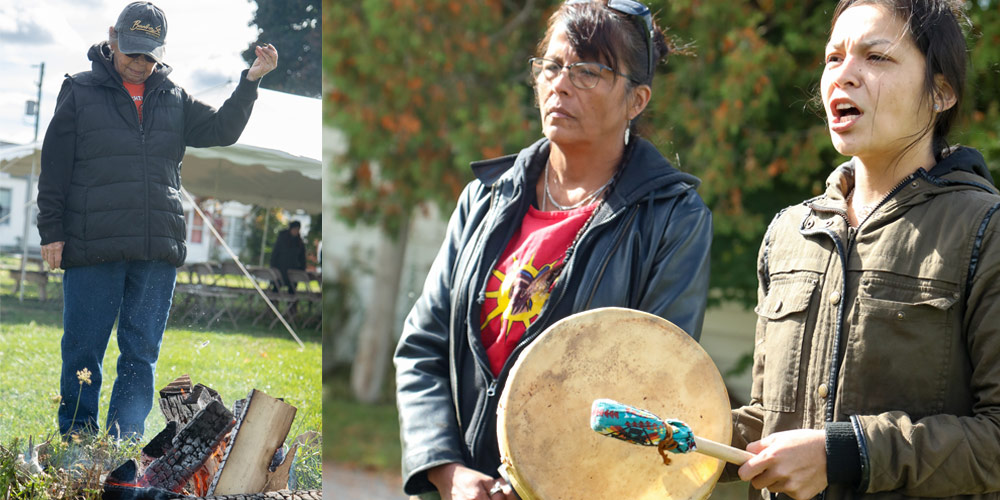
Karyn Pugliese believes that Reconciliation — in her words, “a remaking of Canada and all its institutions” — will in fact happen.
But the canadaLANDBACK host and co-producer is less certain of the means by which that will take place.
“What if Reconciliation’s not a warm hug?” she asks towards the conclusion of today’s episode. “What if it comes instead as an army of frustrated youth raising their fists in the air?”
The latest instalment of the monthly series continues on from October’s look at the “Reclamation at Stoney Point” — explaining how a peaceful land action near the southern shores of Lake Huron in the mid-1990s was ultimately greeted by lethal state force:
Though often described as the “Ipperwash Crisis,” that term doesn’t appear in the episodes. Instead, Pugliese and co-producer Kim Wheeler reframe the events of September 1995 as merely the climactic chapter of a century-spanning act of colonial theft, when members of the Stoney Point First Nation organized to assert their right to land that the government had seized to build a training camp in World War II (and falsely promised would be returned once the conflict had ended). During the land action, Ontario Provincial Police shot and killed Anthony “Dudley” George.
Even after all this time, however, the Stoney Point community still does not yet have its land back — and it is that open-endedness that made Pugliese want to revisit the story now. She hoped to travel to Stoney Point to meet someone from a younger generation, someone “born bearing the weight of all that history.”
She found such a person in Alabama Bressette, George’s great-niece. Bressette was born in 1998 and never got to meet him but says she’s spent her whole life “hearing stories of him and hearing how my grandma, my uncles, and my whole community struggled to… to just live, really.”
“There is,” she notes, “so much hurt and pain still.”
Will Bressette — and all her peers locked in similar, intractable struggles with the Canadian state — be content to fight the same battles, in the same ways, as those who came before them?
On the show, Pugliese puts that question to Donald Worme, a Cree lawyer from Kawacatoose First Nation, who was commission counsel for the Ipperwash Inquiry.
“I think that we have young Indigenous people who are highly motivated, highly educated, who will continue this struggle, and they will continue to make significant gains in the future,” he says. “They will do it by logic. They will do it using the laws.”
Worme cautions, however, that “if they continue to be oppressed and shut out by the legal system and by civil society, then there is no way that they will simply give up and walk away. That is not in their blood.”
“Sooner or later,” Pugliese says, “Canada is gonna hit the last generation they can bargain with.”
canadaLANDBACK is a co-production of Canada’s National Observer and Canadaland.
Top photos of Carolyn “Cully” George and members of her family taken by Karyn Pugliese at the launch of Our Long Struggle for Home: The Ipperwash Story by Aazhoodenaang Enjibaajig.